 |
Catholic Medical Books |
 |
|---|
St. Hildegard of Bingen
Numerous so-called pro-Cannabis websites, while providing no proof, make the claim that the church, for what-ever reason, outlawed the use of Medical Cannabis. These allegations are so numerous that no attempt will be made here to rebuke them. Instead we will allow the works of a Roman Catholic Pope and a Roman Catholic Saint to speak for themselves.
Note that at the time only the seeds had known medical uses. It would not be until the early 19th Century that the flowering tops of the plant would come into medical uses.
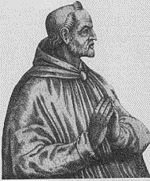 Pope John XXI (1215 – May 20, 1277)
Pope John XXI (1215 – May 20, 1277)
Born Pedro Julião (Latin, Petrus Iulianus), a Portuguese also called Pedro Hispano (Latin, Petrus Hispanus, was Pope from 1276 until his death about eight months later. Pope John XXI was also a physician, being the only pope ever to be so.
MEDICAL WORKS
Surprisingly, one of the most comprehensive recipe books for pre- and post-coital contraception was written by Pedro Hispano, who offered advice on birth control and how to provoke menstruation in his immensely popular Thesaurus Pauperum (Treasure of the Poor). Many of Peter’s recipes have been found surprisingly effective by contemporary research. --- The Wikipedia
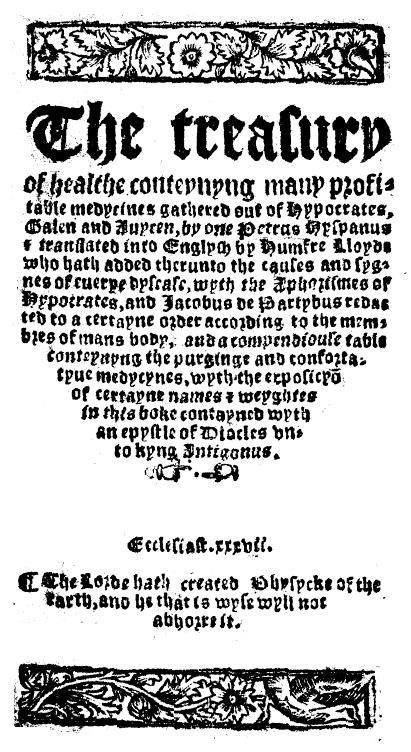
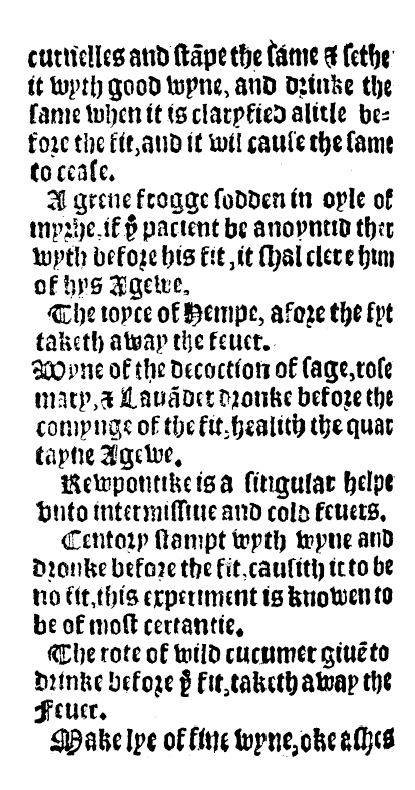
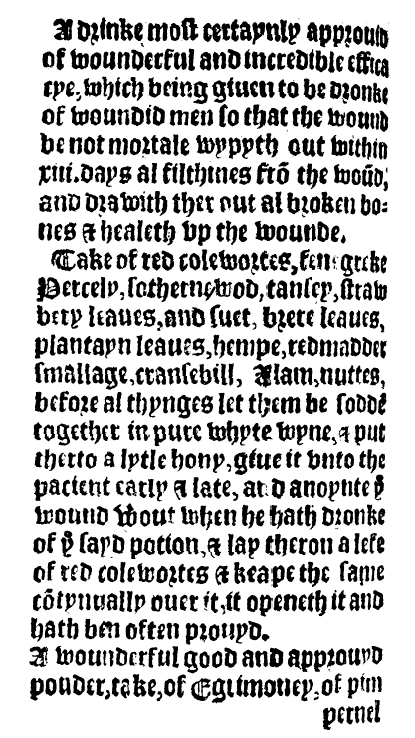
"A Treasury of Health by Pope John XXI [era 1277]"
The treasury of healthe conteynyng many profitable medycines gathered out of Hypocrates, Galen and Auycen, by one Petrus Hyspanus [and] translated into Englysh by Humfre Lloyde who hath added therunto the causes and sygnes of euery dysease, wyth the Aphorismes of Hypocrates, and Iacobus de Partybus redacted to a certayne order according to the membres of mans body, and a compendiouse table conteynyng the purginge and confortatyue medycynes, wyth the exposicyo[n] of certayne names [and] weyghtes in this boke contayned wyth an epystle of Diocles vnto kyng Antigonus.
[English] Publication Date: 1553 By (author) Pope John XXI (era 1277)
Remedies - Agaynst a Carbuncle Capi. LIX
. . . The ioyce of Hempe, afore the fyt taketh away the feuer.
Remedies - Agaynst the scabe and french pokes cap. LXII
. . . Take of red colewortes, fengreke Percely, sothernewod, tansey, strawbery leaues, and suet, brere leaues, plantayn leaues, hempe, redmadder smallage, cransebill, Alam, nuttes, before al thynges let them be sodde~ together in pure whyte wyne, & put therto a lytle hony, giue it vnto the pacient early & late, and anoynte ye wound wtout when he hath dronke of ye sayd potion, & lay theron a lefe of red colewortes & keape the same co~tynually ouer it, it openeth it and hath ben often prouyd.
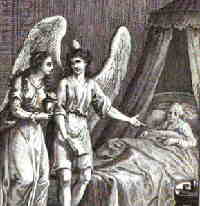 Saint Hildegard of Bingen
Saint Hildegard of Bingen
THE PHYSICA - (12 Centery) By Hildegard of Bingen
The only original [non-reproduction of an old Greco-Roman work or a translation of some Arabic text] medical work from this period that we have come across comes down to us via St. Hildegard of Bingen (1098-1179), a woman monk, who wrote on various subject (including medicine) and according to one author: “Argued that it was important to strengthen the sick body physically so that it could withstand more easily the attacks of the devil and his assistants.”
Of Hemp in her book “The PHYSICA” she wrote:
XI. HEMPOnce more, remember that her herbal was written in the middle of the 12th Century, and in its own way, represented the height of medical knowledge for its day.
“Hemp is warm and grows where the air is neither very hot nor very cold, just as its nature is. Its seed is sound, and it is healthy for healthy people to eat it. It is openly gentle and useful in their stomach since it somewhat takes away the mucus. It is able to be digested easily; it diminishes the bad humors and makes the good humors strong. But nevertheless, whoever is weak in the head and has a vacant mind, if that person will have eaten hemp, it easily makes the person suffer pain somewhat in his or her head. However, whoever is sound in the head and has a full mind, it does not harm. Whoever is seriously ill, it also makes that person suffer pain somewhat in the stomach. However, whoever is only moderately ill, it does not cause pain when eaten.
However, let whoever has a cold stomach cook hemp in water, squeeze out the water, wrap it in a cloth, and then place the hot cloth often over the stomach. This comforts the person and restores that place. Also, whoever has a vacant mind, if the person will have eaten hemp, it causes pain somewhat in the head; but it does not cause pain in a sound head and full brain. Also, the cloth made from the hemp heals ulcers and weeping wounds because the heat in the hemp has been tempered.”
Our internal gratitude to EEBO [Early English Books Online] for much of the enclosed material.
WANT TO KNOW MORE:
=====================
Due to space / download time considerations, only selected materials are displayed. If you would like to obtain more information, feel free to contact the museum. All our material is available (at cost) on CD-Rom format.
CONTACT PAGE
 BACK TO MAIN SECTI0N |
The EARLY CHURCH  On to the Next Section |